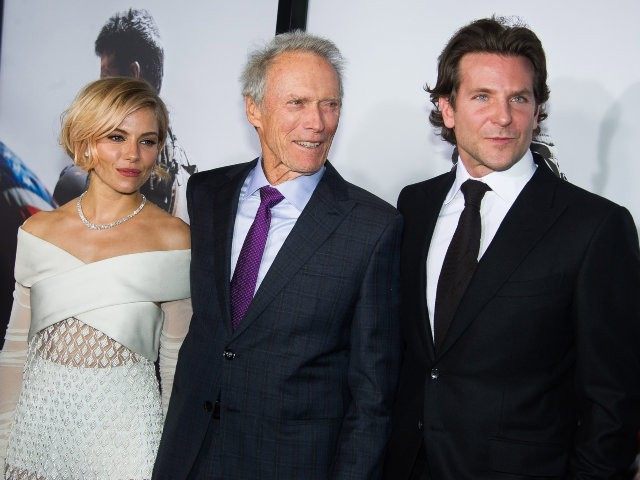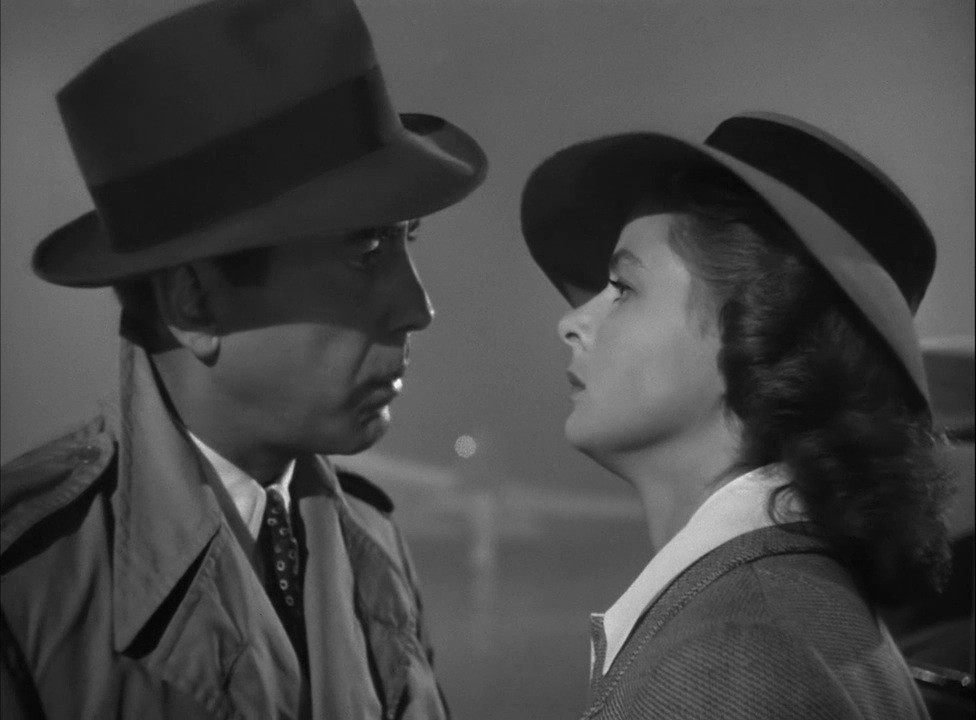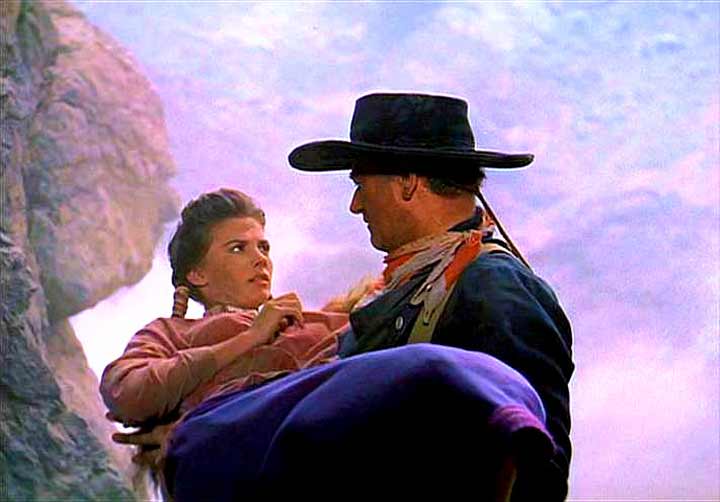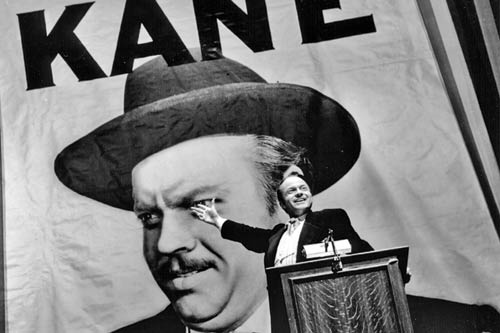Because their “American Sniper” analysis is much more thoughtful than what we saw from Salon’s Andre O’Hehir’s lunacy Wednesday, I want to be clear that I’m no in any way lumping the LA Times’ Steve Zeitchik and Variety’s Scott Foundas into the category of misleading. Nevertheless, it is fascinating to watch two intelligent film writers analyze what a film is about while at the same time writing around the film’s most important revelation and pivotal scene.
The defining moment of Clint Eastwood’s “American Sniper” plays out twice onscreen and countless more times in the mind of the movie’s central character, the late Navy SEAL marksman Chris Kyle (played by Bradley Cooper). … [D]own below, a woman in a full burqa emerges with a young boy in tow. … [S]he [hands] a live grenade … to the boy, who begins running toward a line of advancing U.S. soldiers. Kyle sets the boy in his rifle sight and hopes against hope for fate to somehow intervene. But this is do or die, and so he pulls the trigger, earning the first of his 160 confirmed kills. ….
Like Kyle in his memoir, Eastwood never puts a convenient label on things — the term “post-traumatic stress” is never spoken — but Kyle is an unmistakably wounded warrior, physically in one piece but psychologically shattered, haunted by nightmares that stay with him upon waking. …
Yet “American Sniper” doesn’t announce itself as an “anti-war” movie, or an issue movie of any sort. Rather, the theme, as it has often been for Eastwood, is a subtle but profound demythologizing of the American experience, from the presumed manifest destiny of the frontier times to the phantom WMDs of the present. Violence may be an inevitability in Eastwood’s world, but it’s hardly a necessity, and rarely if ever a means to a glorious end. So it seems only fitting that “American Sniper” culminates in a firefight set during an epic, blinding sandstorm — as succinct a visual metaphor as movies have given us for the pervasive fog of war.
That’s pretty straight-forward but still, in my opinion, factually flawed — and not in a small way.
As you’ll see below, Zeitchik backs up his theories based on the premise that we’re not supposed to believe what Chris Kyle says; that it’s all bravado and a front. Again, as I’ll explain below, this analysis falls apart on impact with the film’s most important scene.
As Kyle racks up the kills, he is asked often—by his wife, by others in the military—if he ever feels guilty about killing for a living. The soldier’s response is pro forma, even robotic—he is doing his job and protecting his men, he says. No two ways about it.
Such a response, said so flatly and so often, is hardly an overwhelmingly persuasive response—it ignores, for instance, the need for him and his fellow soldiers to be in that position in the first place–and it’s not entirely clear from the film we’re supposed to believe him that things are so black and white. In fact, it’s not even entirely clear from the film that we’re supposed to believe that he believes things are so black and white.
“American Sniper” is filled with moral counterpoints like this. Toward the end of the film, the widow of a soldier killed in combat reads a letter in which her late husband confesses his misgivings about the war in Iraq. It’s a haunting and intriguing moment. And it may well be that Eastwood and screenwriter Jason Hall are giving voice to an entirely different message—that Kyle is trying to do the right thing in difficult circumstances, but that he shouldn’t be in these circumstances in the first place.
When Kyle’s wife, Taya, asks him about the letter afterward, he suggests that the soldier died precisely because he stopped believing in the mission—a self-serving rationalization (belief in a mission would seem to have little to do with whether one is hit by an Iraqi sniper’s bullet) that, even if Kyle believes it, is supposed to be porous, and then some, to the rest of us. These are moments that suggest that, for all the support-our-troops fervor, the film– in its own low-key, nonpolicy-oriented way–is also questioning why troops should be fighting there.
***BIG SPOILER COMING***
Throughout the entire film, a knot tightens within Chris Kyle. That’s the film’s big mystery. Eastwood wants us to ask ourselves what is wrong with Kyle, what is it that’s eating him alive inside. And yes, as Zeitchik points out, we are left to wonder if what Kyle says in defense of the mission in Iraq (“Do you want to fight these terrorists in San Diego?”) and about his friend’s death is indeed false bravado.
What Zeitchik and Foundas leave out of their analysis — what they seem to be self-consciously writing around — is the fact that “American Sniper” loudly and declaratively answers this question.
From my review:
The Big Emotional Question that drives much of “American Sniper” is whether or not, after it’s all over, Kyle still believes in who he is and what he’s done. The film’s best moment comes when that question is answered, when we learn just what is that is tearing Kyle up inside. “I will stand before my Creator and justify every shot,” he tells a military therapist.
You see, it’s not Iraq or Bush or the military or the mission or even those 160 confirmed kills. What’s eating Kyle alive is that he didn’t do more — didn’t save more United States Marines.
Neither the movie nor Eastwood argue this point. The point is objectively proven true because it’s “saving” his “brothers” that eventually saves Kyle — his work with troubled veterans loosens the torturous knot and at long last delivers him home. The point is driven home even further when we watch Kyle teach his young son to hunt.
This is not a small thing.
In fact, it is everything.
That is the moment that tell us what the movie is really “about.”
And this is a movie about a protagonist whose only regret is that he didn’t kill more of those evil fucking savages [terrorists].
Eastwood doesn’t hide the fact that war is hell, but he also doesn’t hide the fact that an imperfect but selfless American hero believed the cause righteous.
The entire film is structured around arriving at this unforgettable moment, and the rest of the film proves that Kyle is and has been 100% honest with us from the beginning. “American Sniper” doesn’t close with Kyle questioning the mission, second guessing his actions, joining an anti-war protest, sending care packages to terrorist barbarians at Gitmo, or voting for Barack Obama.
Kyle is saved by doing what he felt he fell short of doing in Iraq: Saving his brothers.
This isn’t my interpretation of “American Sniper.”
These are objective plot points.
This is what actually happens in the actual movie.
Would you analyze “The Searchers” without revealing that Ethan Edwards sets out to murder his niece and then changes his mind? Would you analyze “Citizen Kane” without addressing that Rosebud is the protagonist’s sled from childhood? That Rick gives up Ilsa? That Norman Bates is his mother? That the building of that baseball field was all about reuniting Ray Kinsella and his father?
These moments ARE those movies, and “American Sniper” IS that moment. It is also why “American Sniper” is a masterpiece.
Zeitchik and Foundas are smart guys. Maybe they can stick to their respective points of view while taking on, instead of avoiding, the most important turning point in Eastwood’s masterpiece.
But until they (and others like them) do, the analysis smells whole lot more like wishful thinking than anything else.
John Nolte on Twitter @NolteNC




COMMENTS
Please let us know if you're having issues with commenting.